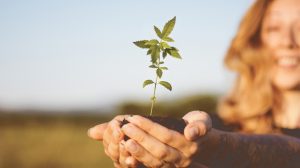By Hans Doherty – Growing in Health Florida


Addiction is about loneliness, isolation, and self-loathing. We are all effected directly or indirectly. When your co-worker doesn’t show up for work, or your sister or brother says they can’t be there, perhaps addiction is the reason.
Someone you know is silently dealing with addiction right now.
Be kind. Be supportive. Be educated so you can recognize the signs and maybe save someone who feels desperate or just needs a helping hand out from the shadows.
There are chemical changes that happen to our bodies when we go from occasional, or social use, to the more destructive addiction. How this happens is being studied by psychiatrists, and phycologists around the world.
What triggers addiction? It’s believed that dopamine, an important chemical in the brain, plays a key role. When the addict satisfies their craving by “using” whatever it is their addicted to, dopamine is released in vast amounts and produces a natural high. This is part of the brains reward response that tells us,
WOW…I like this, so let’s do it again.
I don’t care if your eating toilet paper. If you’re feeding your addiction, the reward response will take place when you satisfy that desire by flooding the brain with dopamine. Food, alcohol, nicotine, the list of addictions goes on and on. People become addicted because of the reward response. Chemical dependency is part of the equation too.
Cannabis has long been mislabeled as a gateway drug. Studies now show that just the opposite is the case. Cannabis helps to curb cravings by reducing that reward response. It takes away that euphoric effect and lessens the desire for the person to take or want more. I’m not saying that you’ll quit being an addict if you use cannabis, but studies show it can help.
THC and CBD in high doses can be used as a bridge to sobriety. I have several clients who are off opiates, but now use suboxone or methadone. These are also addictive, but don’t get the patient “high”. Getting off those meds can be difficult, if not impossible to quit because there is a withdrawal factor. Chemical dependency is real. Being dope sick is a real thing. It can disrupt daily life for 2-3 weeks until those chemicals are able to be rid from the body.
In-patient addiction treatment hospitals are expensive and don’t always work. The person being treated must have the desire to quit, end of story!
We all know you can lead a horse to water, but you can’t make him drink. Addiction is the same thing. First step is to get the commitment that sobriety is desired. From there, it’s possible to make real changes to surroundings and behaviors. Without that commitment, the efforts might fall short.
I encourage those with questions to come visit me at the store, or to call me.
Thank you for reading!
FDA disclosure: Cannabis has not been proven to diagnose, treat or remedy any medical condition. No medical advice rendered.
I’m here to answer your questions and perhaps change someone’s life forever!
We invite your questions at www.growinginhealthflorida.org.
Hans Doherty, Owner of Growing in Health Florida, with his pal Moochie.
Growing in Health Florida
7211 Vanderbilt Beach Rd., Suite. 3
Naples, FL 34119
239-331-4807
www.growinginhealthflorida.org
 Southwest Florida's Health and Wellness Magazine Health and Wellness Articles
Southwest Florida's Health and Wellness Magazine Health and Wellness Articles

